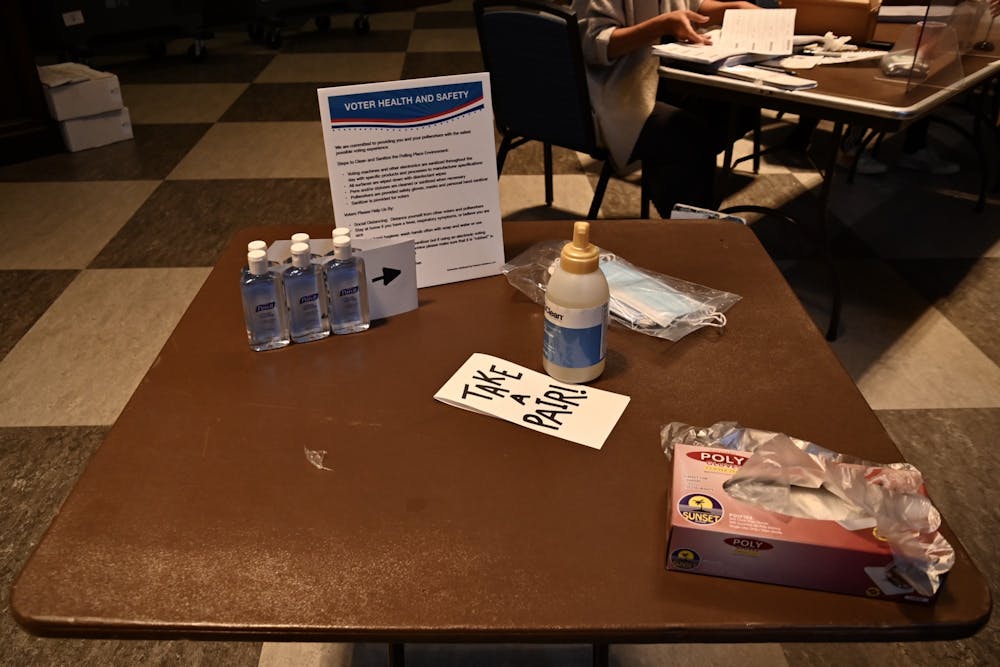
Public reception of Pennsylvania's week-long extension for mail-in primary ballots has been mixed, with voters' support largely falling along political party lines.
Governor Tom Wolf's deadline extension from June 2 to June 9 was originally enacted to allow voters more time to deal with delays resulting from the coronavirus pandemic and recent civil unrest. In response, some Republicans have spoken out against the extension, which applied to Philadelphia and five other counties in Pennsylvania.
As the November election draws near, Democrats have offered approval of mail-in voting, while some Republicans, including 1968 Wharton graduate President Donald Trump, have spoken out against it.
On May 24, Trump tweeted that mail-in ballots would lead to “the greatest rigged election in history."
Trump’s criticisms of the mail-in ballot systems have led to widespread mistrust of vote-by-mail initiatives within Pennsylvania Republicans, The Philadelphia Inquirer reported.
“We’re not pushing the mail-in voting,” chairwoman of Pennsylvania’s Northampton County GOP Lee Snover told the Inquirer. “We’re concerned about fraud. We’re not happy with the process. Trump has sent the message out there that he’s concerned about it as well.”
Political Science professor Matthew Levendusky said the mail-in ballot extension may significantly increase turnout for all voters, regardless of their party affiliation.
“This was the first year where PA allowed individuals to vote by mail, but many people didn’t know this, as it didn’t receive much media attention," Levendusky said. "Once the pandemic hit, state officials worked hard to explain to people that this was an option, but it was difficult to spread that message in time, so many people requested their ballots late and hence didn’t return them in time."
"So because of Governor Wolf’s order, many more ballots can now be counted,” he said.
Several studies have been conducted with the hope of understanding any partisan effects that mail-in ballots might have on nationwide voter turnout.
A Stanford University study conducted in California, Utah, and Washington, found that vote-by-mail has no effect on either party's turnout or vote shares in counties that implemented universal vote-by-mail.
“The bigger problem has been that national Republicans, most notably President Trump, have politicized the issue,” Levendusky said. “But there is no evidence of any partisan bias in mail-in ballots.”
While not allowing mail-in ballots would likely not harm one singular party over another, rising College junior and Penn Leads the Vote Director Harrison Feinman said vote-by-mail could result in voter disenfranchisement.
“Even though Trump says otherwise, we’ve seen studies prove that vote by mail is neutral, meaning that the mail-in ballots really don’t help either Democrats or Republicans,” Feinman said.
“The only downside to increasing the measures to make vote by mail more accessible is collective voter suppression, not necessarily helping or harming a singular party,” he said.
Penn Democrats Political Director and rising College junior Michael Nevett believes the mail-in ballot deadline extension was a step in the right direction, but said there have been challenges in administering these vote by mail elections, including efficiency in the vote counting process.
Nationwide postal service delays because of restrictions surrounding ongoing coronavirus precautions such as stay-at-home orders. Additionally, the decision to extend the deadline comes just after the citywide curfew in which non-essential workers were required to stay at home, which further restricted voters' opportunities to mail their ballots in.
“It’s important that we try to run through and address any issues with the mail-in ballots now, on both the administrative and legislative sides, because in November, these ballots will be especially important to voters,” Nevett said. “It’s crucially important to expand people’s opportunity to vote.”
The Daily Pennsylvanian is an independent, student-run newspaper. Please consider making a donation to support the coverage that shapes the University. Your generosity ensures a future of strong journalism at Penn.
Donate






